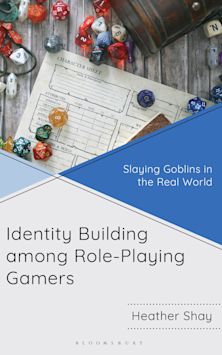- Home
- ACADEMIC
- Sociology
- Sociology - Other
- Sociology after Bosnia and Kosovo
This product is usually dispatched within 2-4 weeks
- Delivery and returns info
-
Flat rate of $10.00 for shipping anywhere in Australia
You must sign in to add this item to your wishlist. Please sign in or create an account
Description
This book provides a sociological account of the events in Bosnia in the 1990s, including ethnic cleansing, mass rape, and the role of political journalists. Drawing upon a diverse group of social theorists, including Merton, Weber, and Baudrillard, Sociology After Bosnia constructs a social understanding of the experiences of people in Bosnia and the response of Western leaders to these experiences.
Beyond looking at the social causes of these events, Doubt sheds light on why Bosnia and Kosovo have largely been ignored by sociologists. He shows why the personal and social tragedies of people in Bosnia and Kosovo and the world's tolerance of these tragedies challenge contemporary sociological knowledge. Doubt argues that sociologists must be willing not only to recognize this challenge, but also to respond to it in order to construct meaningfully adequate accounts of war and genocide in a postmodern era. Doing so, he contends, may yield an important and needed reconsideration of the existing body of sociologicial knowledge and a revision of how this knowledge is applied.
Table of Contents
Chapter 2 1 Sociology After Bosnia
Chapter 3 2 On the Pathetic Hegemony of Face-Work
Chapter 4 3 On the Last Function of Ethnic Cleansing in Bosnia
Chapter 5 4 The Croat-Muslim War: An Inconvenient Fact
Chapter 6 5 The Ritual of Shame and the Western Response to Bosnia
Chapter 7 6 On the Dialectic of the Scapegoat in Kosovo
Chapter 8 7 Feminism and Rape as a Transgression of Species-Being
Chapter 9 8 The Iron Cage of Rationality in Bosnia: Max Weber and the UN
Chapter 10 9 Charismatic Authority: Mladic in Bosnia
Chapter 11 10 Journalism and Modern Ethics: Tim Judah and Roy Gutman
Chapter 12 11 Chomsky's Problem: Fairness First
Chapter 13 12 On the Injustice of Postmodernism: Peter Handke in Serbia
Chapter 14 13 Against the Positivistic-Utilitarian Understanding of Bosnia
Chapter 15 14 Justice and Peace Before Utilitarianism
Chapter 16 Afterword
Chapter 17 Film and Video Resources for Understanding Events in Bosnia
Chapter 18 Glossary of Sociological Terms
Chapter 19 Glossary of Names
Chapter 20 Bibliography
Product details
| Published | 19 Jan 2000 |
|---|---|
| Format | Paperback |
| Edition | 1st |
| Extent | 200 |
| ISBN | 9780847693771 |
| Imprint | Rowman & Littlefield Publishers |
| Dimensions | 227 x 149 mm |
| Series | Postmodern Social Futures |
| Publisher | Bloomsbury Publishing |
About the contributors
Reviews
-
Professor Keith Doubt has produced a sociological analysis of the impact of Bosnia's drama on the modern world of liberal democracy. The result is a book which contributes outstandingly to the comprehension of events in Bosnia and to the identification of current inaccuracies of interpretation. This book is of crucial importance to all efforts to prevent the only temporarily arrested tragedy of Bosnia from sinking into undeserved oblivion.
Rusmir Mahmutcehajic, president of International Forum Bosnia
-
This brief work should be read not only by sociologists but by other social scientists such as historians, anthropologists, political scientists. The book is an extremely good text from which to debate some of the essence of sociological theory, and explian it, while focusing on real issues, not only of Bosnia and Kosovo, but, by extention, other fields of conflict in which TV, the press, and popular and immediate writing from public opinion.
H-Net: Humanities and Social Science Reviews Online
-
Sociology after Bosnia and Kosovo is a powerful reminder that we need to continue to wrestle with the idea of justice, rather than setting for a facile pragmatism or cynicism that only contended with justice on a superficial level.
Human Rights Review
-
This book is engaging and provocative.
Slavic Review
-
Few sociologists reach across such a range of topics as does Keith Doubt. Sociology After Bosnia and Kosovo displays his gift for rethinking theory in relation to one of the world's trouble spots. I recommend this book for anyone eager to see sociology in a surprisingly fresh way.
Charles Lemert, University Professor of Social Theory, Emeritus, Wesleyan University



































